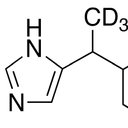Early age conductive hearing loss causes audiogenic seizure and hyperacusis behavior.
Słowa kluczowe
Abstrakcyjny
Recent clinical reports found a high incidence of recurrent otitis media in children suffering hyperacusis, a marked intolerance to an otherwise ordinary environmental sound. However, it is unclear whether the conductive hearing loss caused by otitis media in early age will affect sound tolerance later in life. Thus, we have tested the effects of tympanic membrane (TM) damage at an early age on sound perception development in rats. Two weeks after the TM perforation, more than 80% of the rats showed audiogenic seizure (AGS) when exposed to loud sound (120 dB SPL white noise, < 1 min). The susceptibility of AGS lasted at least sixteen weeks after the TM damage, even the hearing loss recovered. The TM damaged rats also showed significantly enhanced acoustic startle responses compared to the rats without TM damage. These results suggest that early age conductive hearing loss may cause an impaired sound tolerance during development. In addition, the AGS can be suppressed by the treatment of vigabatrin, acute injections (250 mg/kg) or oral intakes (60 mg/kg/day for 7 days), an antiepileptic drug that inhibits the catabolism of GABA. c-Fos staining showed a strong staining in the inferior colliculus (IC) in the TM damaged rats, not in the control rats, after exposed to loud sound, indicating a hyper-excitability in the IC during AGS. These results indicate that early age conductive hearing loss can impair sound tolerance by reducing GABA inhibition in the IC, which may be related to hyperacusis seen in children with otitis media.


